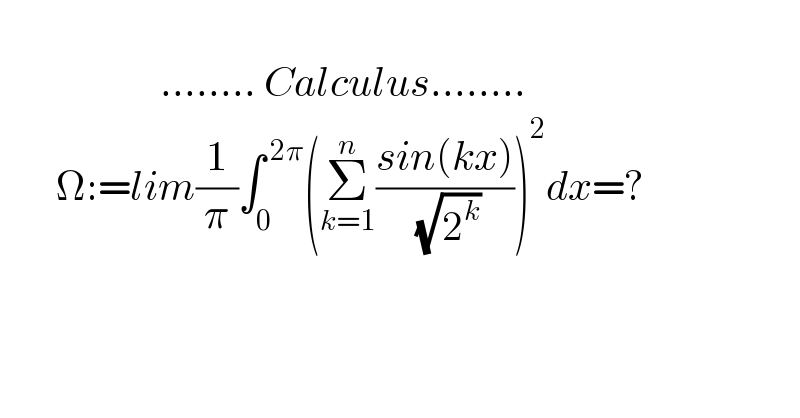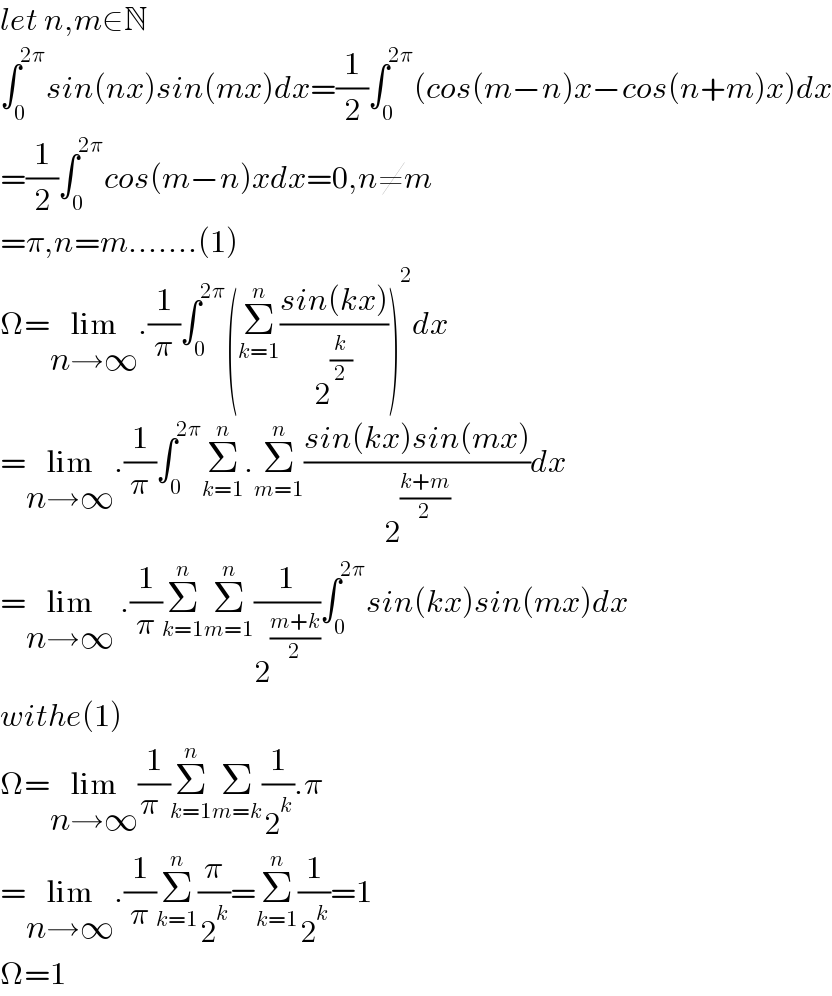
Question and Answers Forum
Question Number 144053 by mnjuly1970 last updated on 21/Jun/21

Answered by mindispower last updated on 21/Jun/21

Commented by mnjuly1970 last updated on 21/Jun/21

Commented by mindispower last updated on 22/Jun/21

| ||
Question and Answers Forum | ||
Question Number 144053 by mnjuly1970 last updated on 21/Jun/21 | ||
 | ||
Answered by mindispower last updated on 21/Jun/21 | ||
 | ||
| ||
Commented by mnjuly1970 last updated on 21/Jun/21 | ||
 | ||
Commented by mindispower last updated on 22/Jun/21 | ||
 | ||